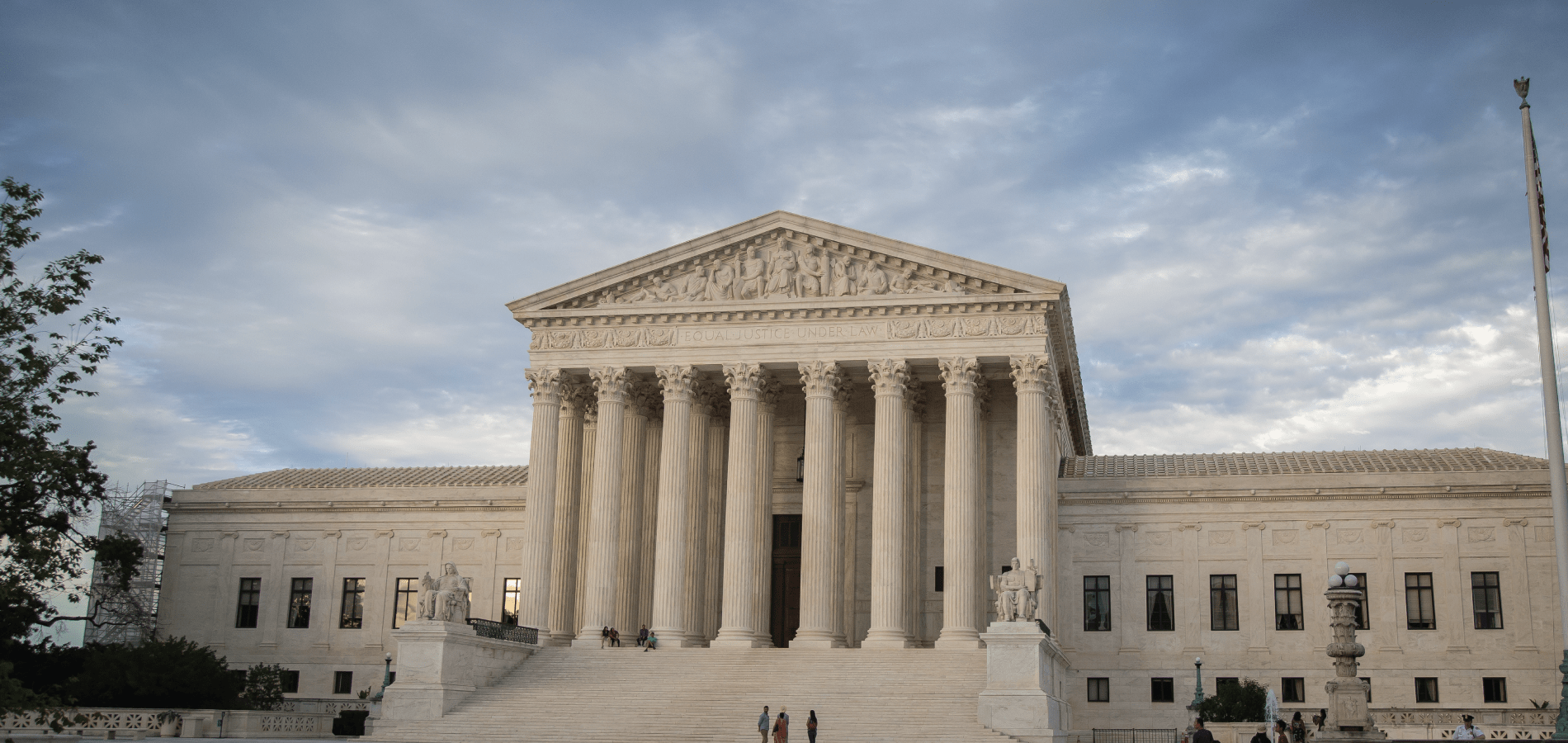In the ominous early morning of April 27, 1913, a chilling discovery sent shockwaves through the very heart of Atlanta, Georgia. In the dim and musty confines of a factory basement, the lifeless body of Mary Phagan, a mere 14-year-old girl, was stumbled upon by a lone night watchman. The air hung heavy with an eerie stillness, broken only by the watchman’s gasp of horror as he beheld the gruesome scene before him.
Strangled, the cold grip of death still lingered in the air around her, mingling with the unsettling aroma of dirt and ashes that clung to her body. The basement’s floor had turned into a sinister stage for an act of unfathomable malevolence.
Who, in this unsuspecting factory, could have committed such a heinous crime? Suspicion swirled like a storm, casting its shadow upon the factory’s superintendent, a figure of authority. Was he capable of darkness beyond imagination? But the night watchman himself was not immune to speculation. His very presence during the grim discovery painted him as both witness and potential perpetrator. Could he have been guarding more than just the factory that fateful night?
Let’s venture into the annals of history using HeinOnline’s World Trials Library and unearth the secrets that have slumbered beneath layers of time. Don’t want to read? Click the headphones at the bottom right of the screen and consider this your true crime podcast of the day.
An Unfortunate Event
During the morning of April 26, 1913, Mary Phagan left her home to collect her wages from the National Pencil Company, two miles away. According to Leo Frank, the superintendent of the factory, he briefly saw the girl early that afternoon. [1]John D. Lawson, 1852-1921 (Editor). American State Trials; a Collection of the Important and Interesting Criminal Trials Which Have Taken Place in the United States from the Beginning of Our Government to the Present Day (1914-1936). This … Continue reading In the confines of his second-floor office,[2]Francis X. (Francis Xavier) Busch, 1879-. Guilty or Not Guilty – An Account of the Trials of the Leo Frank Case, the D. C. Stephenson Case, the Samuel Insull Case, the Alger Hiss Case (1952). This document can be found in HeinOnline … Continue reading he exchanged a passing interaction with the young girl, handing her an envelope containing $1.20. When she did not return home that night, her family initiated a search but she was nowhere to be found, as if she had vanished into thin air.
Early the next morning, around 3:30am, her lifeless body was found in the basement of the factory by Newt Lee, a Black night watchman who was making his rounds of the building. When police arrived, it was apparent there was a struggle. They found a cord wrapped around her neck, torn underwear, and bloody fingerprints which made it clear that the murderer had escaped through a sliding door[3]C. P. Connolly. Truth about the Frank Case (1915). This document can be found in HeinOnline World Trials Library. that led to an alleyway.
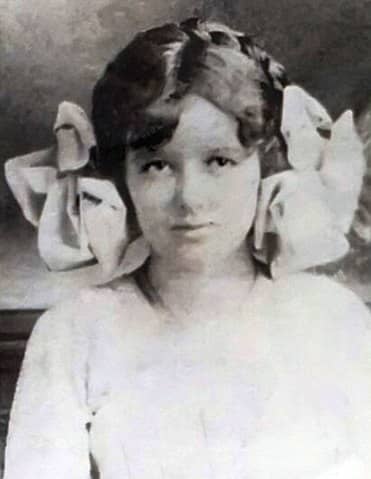
Oddly enough, next to Mary’s body two notes were found. While these notes read as if they were written by Mary herself, it was clear this was the murderer’s way of diverting suspicion. The first note said “mam that negro hire(d) down here did this i went to …and he push(ed) me down that hole a long tall negro black hoo it wase long sleam tall negro i wright while…”[4]C. P. Connolly. Truth about the Frank Case (1915). This document can be found in HeinOnline World Trials Library. and the second read “he said … play like the night witch did it but that long tall black negro did buy his slef.”
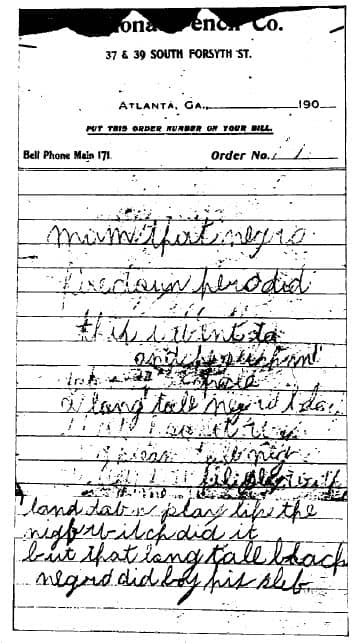
The Usual Suspects
Amidst the public outcry of the horrendous murder, swift action was taken by the police. Newt Lee found himself promptly apprehended, although his unwavering account was verified through investigations and he was eventually let go. Leo Frank suggested police question Jim Conley,[5]Francis X. (Francis Xavier) Busch, 1879-. Guilty or Not Guilty – An Account of the Trials of the Leo Frank Case, the D. C. Stephenson Case, the Samuel Insull Case, the Alger Hiss Case (1952). This document can be found in HeinOnline … Continue reading a janitor at the factory. He was questioned for several days and eventually arrested the Thursday following the murder. While Conley had a history of minor transgressions, law enforcement struggled to substantiate any incriminating evidence against him. He was eventually let go, but that won’t be the last we hear of Conley.
A Highly Anticipated Arrest and Trial
The focus soon pivoted to Leo Frank, the last person to see Mary Phagan alive. He was arrested within just three days of the murder. Frank, the factory’s superintendent, was a well-known Jewish-American who held a degree in mechanical engineering from Cornell University. Frank entered a plea of not guilty during a month-long trial. Over the course of this period, media outlets branded Frank a “Jew,” invoking prejudiced sentiments[6]Arthur Garfield Hays. Trial by Prejudice (1933). This document can be found in HeinOnline World Trials Library. that gradually gained momentum.
Prosecution relied heavily upon Jim Conley’s testimony. Throughout investigations, Conley provided the police with multiple narratives. Initially, he stated he was not at the factory the day of the murder. In his second story, he admitted to writing one of the notes at Frank’s request the day before but maintained he was never at the factory. In his third rendition, he said he was at the factory, but knew nothing of the murder. Upon taking the witness stand during the trial, he claimed he heard Mary scream shortly after entering Frank’s office. According to Conley, Frank confessed to hurting the girl[7]C. P. Connolly. Truth about the Frank Case (1915). This document can be found in HeinOnline World Trials Library. and offered him money to help him move the body and maintain silence.
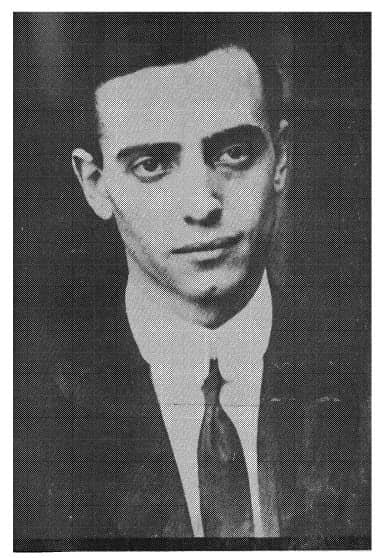
Guilty or Not Guilty?
At the end of the trial, emotions were at an all-time high. Recognizing the intensity of the situation, the presiding judge cautioned Frank and his legal team against being present during the verdict’s announcement, citing concerns for their safety. On August 25th, 1913, Frank was found guilty and sentenced to death by hanging. After several failed state appeals citing jury prejudice, intimidation of the crowds outside the courthouse, and more, Frank and his legal team brought the case to the Supreme Court in Frank v. Mangum.[8]Frank v. Mangum, Sheriff of Fulton County, Georgia, 237 U.S. 309, 349 (1915). This case be found in HeinOnlne’s U.S. Supreme Court Library The appeal was denied in a 7-2 vote.
The case finally reached Governor John Slaton’s office, where he diligently examined all the legal papers and conducted numerous public hearings where more than 100 individuals provided their testimonies. Furthermore, the original presiding judge, on his deathbed, penned a letter to Governor Slaton, imploring him to assist Frank due to a strong belief in his unjust trial. In the end, the Governor reduced Frank’s death sentence to a life sentence in prison,[9]Francis X. (Francis Xavier) Busch, 1879-. Guilty or Not Guilty – An Account of the Trials of the Leo Frank Case, the D. C. Stephenson Case, the Samuel Insull Case, the Alger Hiss Case (1952). This document can be found in HeinOnline … Continue reading causing an uproar among citizens. Within his 29-page document, he voiced his criticism of individuals from outside who lacked familiarity with the evidence.
A month had passed since those fateful courtroom proceedings, when a sinister turn of events took Frank by surprise. A fellow inmate viciously attacked Frank, slashing his throat. Swift action was taken, and Frank found himself under the care of a medical team, embarking on a journey of recovery that would span the next four weeks.
Just as hope began to flicker anew, darkness descended once more. Armed with guns and an unsettling determination, 40 masked men kidnapped Frank from prison and transported him to the very ground where Mary Phagan’s body lay. Frank’s life was cut short,[10]Francis X. (Francis Xavier) Busch, 1879-. Guilty or Not Guilty – An Account of the Trials of the Leo Frank Case, the D. C. Stephenson Case, the Samuel Insull Case, the Alger Hiss Case (1952). This document can be found in HeinOnline … Continue reading his body suspended from a gnarled branch, not too far from the resting place of the young girl whose name had been forever entwined with his. No arrests were made in the lynching of Leo Frank.
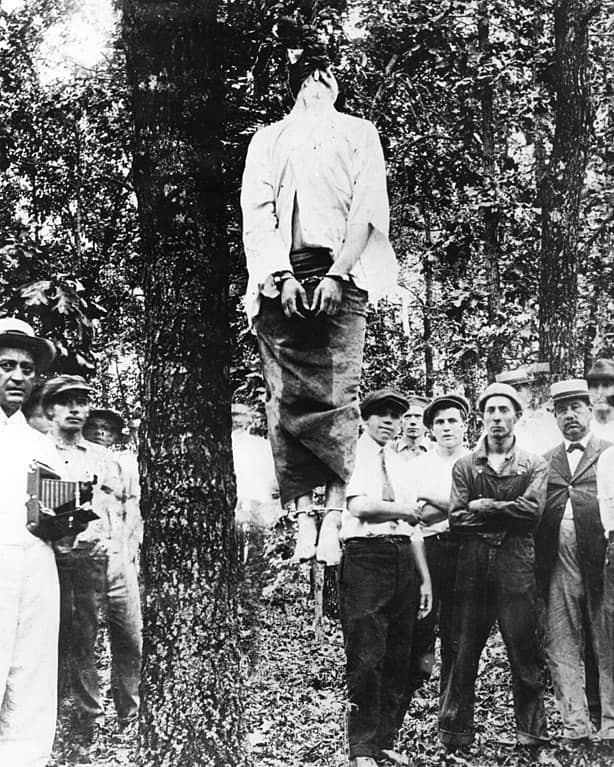
Even now, the tale of Leo Frank continues to haunt the pages of history, a story etched in the shadows of doubt and injustice. Among the minds of researchers, a persistent whisper echoes—the belief that Leo Frank was a victim of a grave miscarriage of justice. Conley was eventually sentenced to a year in prison on the fact that he was an accessory after the fact to the murder. Did Jim Conley truly hold the key to the mystery of the murderer’s identity? Regrettably, the elusive truth remains forever beyond our grasp.
Heinous Histories Continued
As armchair detectives, we can only speculate about the untold stories and hidden motivations that might unveil the ultimate revelation. Keep following our journey through the Heinous Histories series as we unveil more gripping true crime tales from the World Trials Library. And for more dark and twisty stories, check out these blog posts:
- Crime of the Century: The Murder of JonBenét Ramsey
- Death in a Diorama: The Work of Frances Glessner Lee
- Crime of the Century: The Brides in the Bath
- Speech, Crime, and Son of Sam Laws
HeinOnline Sources[+]
| ↑1 | John D. Lawson, 1852-1921 (Editor). American State Trials; a Collection of the Important and Interesting Criminal Trials Which Have Taken Place in the United States from the Beginning of Our Government to the Present Day (1914-1936). This document can be found in HeinOnline World Trials Library. |
|---|---|
| ↑2, ↑5, ↑9, ↑10 | Francis X. (Francis Xavier) Busch, 1879-. Guilty or Not Guilty – An Account of the Trials of the Leo Frank Case, the D. C. Stephenson Case, the Samuel Insull Case, the Alger Hiss Case (1952). This document can be found in HeinOnline World Trials Library. |
| ↑3, ↑4, ↑7 | C. P. Connolly. Truth about the Frank Case (1915). This document can be found in HeinOnline World Trials Library. |
| ↑6 | Arthur Garfield Hays. Trial by Prejudice (1933). This document can be found in HeinOnline World Trials Library. |
| ↑8 | Frank v. Mangum, Sheriff of Fulton County, Georgia, 237 U.S. 309, 349 (1915). This case be found in HeinOnlne’s U.S. Supreme Court Library |

